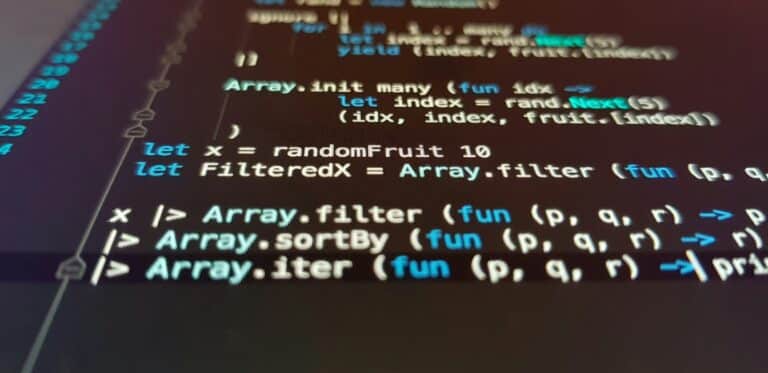Are you ready to explore the intriguing world of task planning strategies for programmers? If yes, then this comprehensive guide on ‘Cracking the Code: Unveiling the Psychology Behind Effective Task Planning for Programmers’ is tailor-made for you. 💻

Dive into the Secrets of Successful Task Planning
Understanding the psychology behind effective task planning can be a game-changer for programmers. It not only assists in managing tasks but also enhances productivity and output quality. So, what are the secrets to successful task planning? 🤔 Well, that’s exactly what we’re going to unravel in this guide.
The Power of Effective Task Planning for Programmers
Task planning might seem like a routine chore for programmers, but the real power of this practice lies in the way it impacts cognitive functioning. With the right planning methods, programmers can streamline their processes, reducing the stress of multi-tasking and enhancing focus on individual tasks. Exciting, isn’t it? 👀
What to Expect in this Guide
In this comprehensive guide, we will dive into the core principles of task planning, discussing various strategies and methodologies that have proven effective for programmers. We’ll shed light on how the human brain interacts with these techniques, thereby revealing the psychology behind successful task planning. Stay tuned for some mind-boggling insights! 🧠💡
Strap in for an Enlightening Journey
Get ready to embark on an enlightening journey through the fascinating terrain of task planning psychology. With a blend of science and practical insights, this guide promises to transform your understanding of task management for programmers. So, why wait? Dive in and crack the code to effective task planning now! 🚀
Breaking Down the Complex: The Importance of Task Planning
For programmers, the ability to plan tasks efficiently is as crucial as having a deep understanding of the programming languages themselves. The task planning process plays an integral role in ensuring a smooth execution of the project by defining clear steps and setting realistic goals.
However, the aspect of task planning often goes unnoticed, especially among novice programmers. This oversight can lead to projects becoming chaotic, with developers becoming lost in the maze of code and project objectives remaining unmet. To navigate this problem, we need to delve into the psychology behind effective task planning and understand how it can make or break a software project.
Understanding the Psychology of Task Planning
At its core, task planning is all about setting and achieving goals. It involves breaking down large projects into smaller, manageable tasks and setting timelines for each task. This process relies heavily on our cognitive abilities, such as problem-solving and decision-making, which are integral to the human psychological experience.
When tasks are broken down into smaller parts, it enables us to focus our cognitive resources on a single aspect at a time. This strategy, known as chunking, has been shown to significantly enhance productivity and reduce mental fatigue. Further, task planning encourages the use of goal-setting theory, a well-researched psychological principle that emphasizes the positive impact of setting specific, achievable goals.
The Programming Brain: How We Process Tasks
When it comes to programming, our brains process tasks differently than in other fields. Research indicates that programming activates a unique blend of cognitive processes, including abstract thinking, pattern recognition, logic, and problem-solving. These cognitive abilities play a significant role in how programmers approach task planning and execution.
For instance, abstract thinking allows programmers to visualize the larger picture and understand how individual code snippets interact within the project. This ability can aid in planning tasks, as it provides insight into how each task fits into the overall project.
Using Cognitive Psychology Principles in Task Planning
Understanding the cognitive processes involved in programming opens the door to integrating psychological principles into task planning. This integration can lead to more effective and efficient work patterns.
One such principle is the theory of cognitive load, which suggests that our working memory capacity is limited. When this capacity is exceeded, it can lead to mistakes and reduced productivity. Therefore, task planning should be designed to minimize cognitive load by breaking tasks down into manageable chunks, setting clear and specific goals, and ensuring that each task is well-defined.
Strategies for Effective Task Planning
Now that we’ve explored the psychological principles that underpin task planning, let’s delve into some effective strategies that programmers can utilize.
1. Use Agile Methodologies
Agile methodologies, such as Scrum and Kanban, emphasize iterative development and flexible response to change. These methodologies incorporate effective task planning by breaking down projects into manageable ‘sprints’ or ‘stories’, thus reducing cognitive load and enhancing productivity.
2. Utilize Project Management Tools
Project management tools like JIRA, Trello, and Asana can facilitate task planning by providing a visual overview of the project timeline and the status of individual tasks. These tools also support collaborative work, enabling team members to share information and coordinate tasks effectively.
3. Implement the Pomodoro Technique
The Pomodoro Technique is a time management method that involves working for a set amount of time (usually 25 minutes), followed by a short break. This technique can boost productivity by providing regular breaks to refresh the mind, thus reducing mental fatigue and enhancing focus.
Getting It Right: The Role of Practice and Reflection
While understanding the psychology behind task planning and using effective strategies can significantly improve a programmer’s productivity, there is no ‘one-size-fits-all’ approach. It’s important to remember that effective task planning is a skill that can be honed with practice and reflection.
Practicing task planning on a regular basis can help you understand what strategies work best for you. Additionally, reflecting on your task planning process after project completion can provide valuable insights into areas for improvement. This cycle of practice and reflection can lead to continuous improvement in task planning, ultimately leading to better project outcomes and enhanced productivity.
Unlocking the Power of the Programming Mind
Understanding the psychology behind task planning for programmers is no small feat. It requires a deep dive into cognitive psychology principles and a keen understanding of how the programmer’s brain processes tasks. By integrating these principles into task planning strategies, programmers can unlock the true potential of their programming mind, leading to more efficient and successful project outcomes.
So, are you ready to crack the code and unveil the power of effective task planning? Remember, it’s not just about writing code – it’s about planning the code you write. And that’s where the true power lies.
Conclusion
In conclusion, “Cracking the Code: Unveiling the Psychology Behind Effective Task Planning for Programmers” has revealed significant insights 💡 into the mind of a programmer. The study is a beacon of hope for all those mired in the complex labyrinth of coding. The effective task planning, as elucidated in the article, isn’t a herculean task but a well-calibrated approach towards problem-solving 👩💻.
The article serves as a testament that programming is not merely a mechanical process but an amalgamation of critical thinking, creativity, and effective task planning. It is evident that a clear understanding of the task at hand, proper time management ⏱, and an unwavering focus are crucial to successful programming.
Moreover, the article advocates for the importance of a balanced work-life to foster creativity and productivity. The connection between the psychological well-being of a programmer and the quality of their code has been astutely highlighted, reminding us that programmers are not code-producing machines, but creative individuals 🧠.
To wrap up, the mastery of effective task planning for programmers requires a blend of technical knowledge, strategic planning, and psychological balance. Embrace these principles, and you’re on your way to not just cracking the code, but mastering it! 💪🎯.
🔖Tags: #programming #taskplanning #psychology #coding #productivity #worklifebalance #programmerwellbeing.



